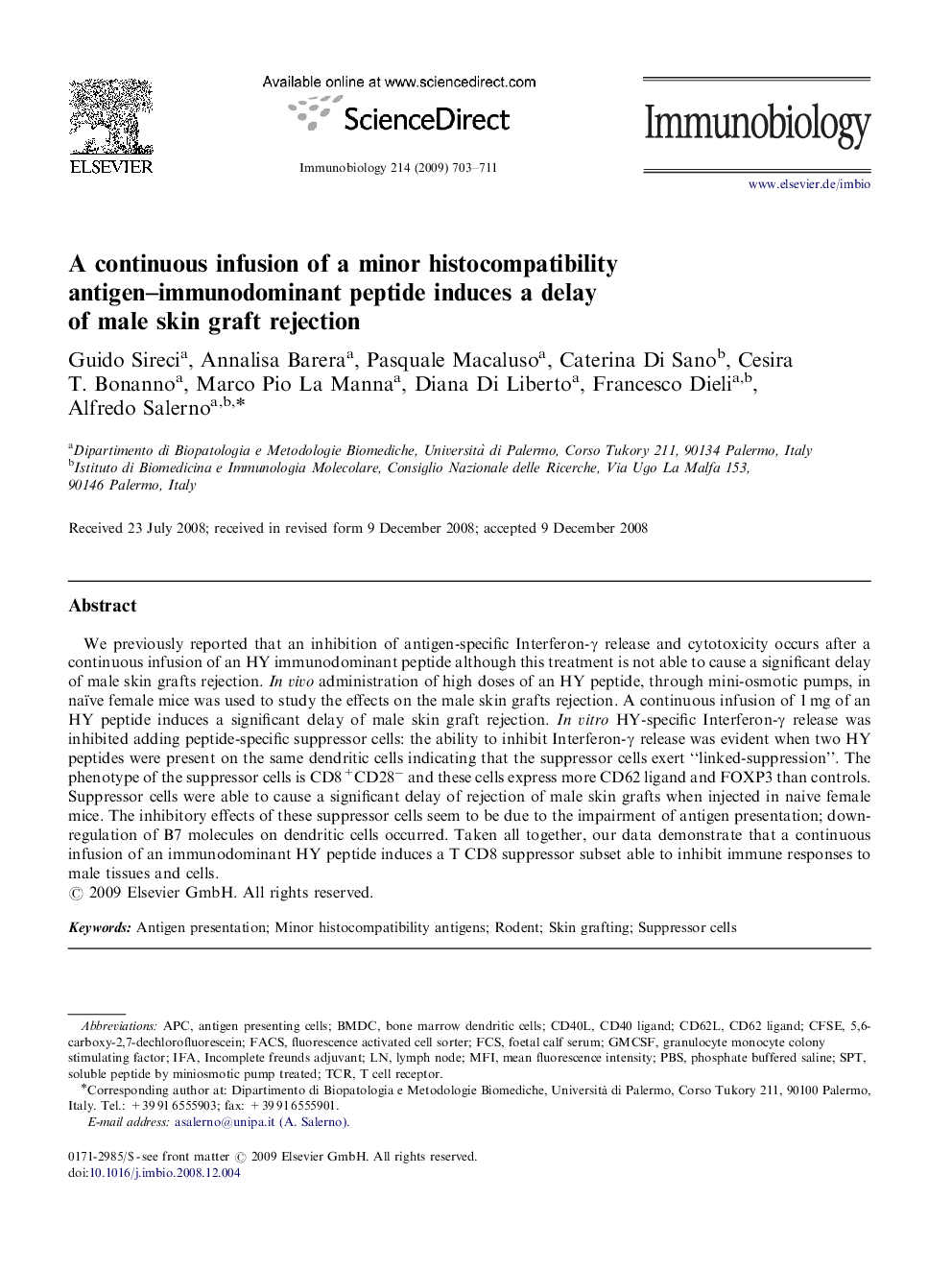| Article ID | Journal | Published Year | Pages | File Type |
|---|---|---|---|---|
| 2183476 | Immunobiology | 2009 | 9 Pages |
We previously reported that an inhibition of antigen-specific Interferon-γ release and cytotoxicity occurs after a continuous infusion of an HY immunodominant peptide although this treatment is not able to cause a significant delay of male skin grafts rejection. In vivo administration of high doses of an HY peptide, through mini-osmotic pumps, in naïve female mice was used to study the effects on the male skin grafts rejection. A continuous infusion of 1 mg of an HY peptide induces a significant delay of male skin graft rejection. In vitro HY-specific Interferon-γ release was inhibited adding peptide-specific suppressor cells: the ability to inhibit Interferon-γ release was evident when two HY peptides were present on the same dendritic cells indicating that the suppressor cells exert “linked-suppression”. The phenotype of the suppressor cells is CD8+CD28− and these cells express more CD62 ligand and FOXP3 than controls. Suppressor cells were able to cause a significant delay of rejection of male skin grafts when injected in naive female mice. The inhibitory effects of these suppressor cells seem to be due to the impairment of antigen presentation; down-regulation of B7 molecules on dendritic cells occurred. Taken all together, our data demonstrate that a continuous infusion of an immunodominant HY peptide induces a T CD8 suppressor subset able to inhibit immune responses to male tissues and cells.
